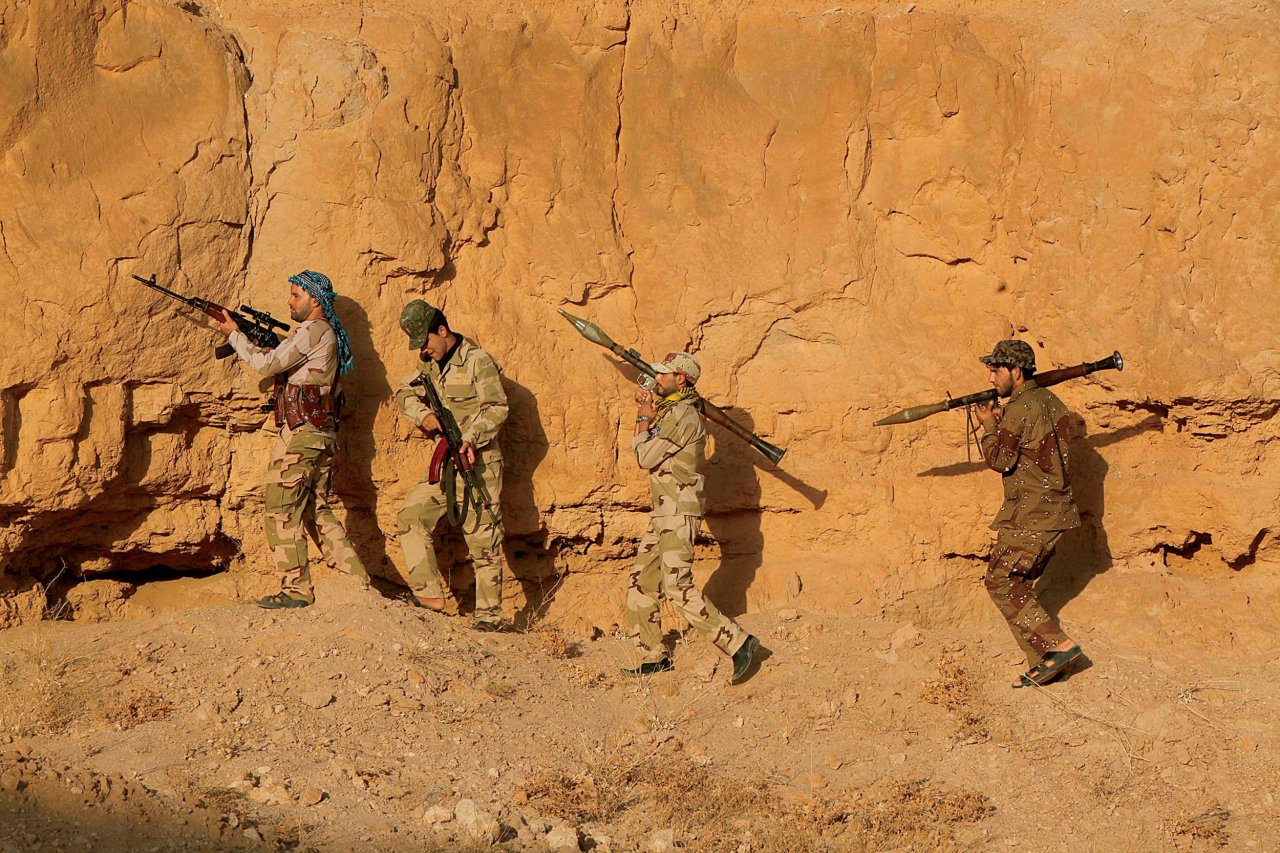Unfortunately, most Americans only remember the shoes.
In December 2008, during former President George W. Bush's final visit to Baghdad, an Iraqi journalist disrupted a press conference by throwing two shoes at him and yelling, "This is farewell…you dog!" Ask pretty much anyone in the United States about the incident and that person can recall it—after all, the stunning footgear flinging was broadcast again and again on national television with plenty of commentators commentating about the attempted assault and the insult implicit in it.
Then ask what that press conference was about and you'll get blank stares. But as the Iraqi government—and in turn, the United States—faces renewed threats from the Sunni fundamentalist group best known as the Islamic State in Iraq and Syria, or ISIS, it is helpful to understand the events that immediately preceded that shoe toss—crucial, that is, for those who care about reality rather than partisan make-believe (are you listening, Senator John McCain?). When people say, "We should have stayed in Iraq because of what is happening now," they are cynically (or ignorantly) misrepresenting the facts. We neither could have stayed in Iraq nor have predicted the appearance of ISIS. History, the natural enemy of venomous talking points, is important to know here.
On the day of the shoe toss that rocked the world, Bush signed the U.S.-Iraq Status of Forces Agreement, which established that American troops would be out of Iraq by December 31, 2011. The pact involved another element that later proved quite contentious—immunity for Americans. Contractors for the State Department and other U.S. agencies could not be prosecuted under Iraqi law, and neither could American troops, with the possible—possible—exception of soldiers who committed major, premeditated felonies while off duty.
Many Iraqis reacted with outrage—not because the American military was planning to leave but because it was being allowed to stay. Muslim religious leaders condemned the agreement, and citizens staged protests at Parliament, in Sadr City and throughout Baghdad. Even thousands of Iraqi refugees in Syria protested what was widely perceived as America's continued occupation of their country.
Fast-forward three years. The deadline for America's withdrawal from Iraq was quickly approaching. The Obama administration had spent months negotiating a new agreement with the Iraqi government in hopes of extending the deadline. Washington wanted several thousand troops to remain to continue training Iraqi forces; the administration wanted to be sure that whatever meager gains had been won since the war began would not be lost.
But it was not to be. Too many Americans—particularly politicians—refuse to acknowledge the indisputable fact that Iraq is a sovereign nation. It is not America-lite. Its leaders and its people are in charge of its destiny. The U.S. doesn't get to tell the Iraqis what to do. And what they told us was to get the hell out of their country.
There was one final attempt to keep U.S. troops there, but those negotiations came down to the issue of immunity. In what should strike no thinking person as surprising, Iraqis didn't like it that foreigners who had come into their country by force could not be prosecuted under their laws. It was considered by some to be the ultimate insult—what kind of hubris did it take, they argued, for the United States to set up a government and then declare that it couldn't be trusted to enforce its own laws when it came to Americans?
The Iraqis steadfastly refused to continue granting immunity to American troops (it didn't help that memories still lingered of the Abu Ghraib prison scandal and the Haditha incident, in which 24 Iraqi civilians were killed by American Marines). Part of the problem was that pesky democracy America brought to Iraq: Prime Minister Nouri al-Maliki told the Obama administration that there were not enough votes in parliament to continue the immunity provision. That was a deal-breaker for senior American military officers: They weren't willing to run the risk that their troops could end up in an Iraqi court facing charges.
So the deadline arrived, and, under the terms of the agreement reached by the Bush administration, America withdrew from Iraq.
In the years that followed, al-Maliki proved to be an enormously foolish leader. A Shiite Muslim, he did everything in his power to stir up dissent among Sunnis. He tossed Sunni leaders out of the government, crushed their political movements and disproportionately deployed security forces to Sunni neighborhoods. The centuries-old animosity between Sunnis and Shiites was building to murderous levels.
Then, in 2013, an unexpected event turned that hatred into warfare: the expansion of the Syrian civil war. That year, a ragtag group of jihadists from outside the country joined in the fight against the government of President Bashar Assad. They had previously been known as "Al-Qaeda in Iraq" and had been key players in the insurgency there. But by the time American troops left the country, this Sunni fundamentalist group had been beaten down and seemed to be of little threat. Syria changed that.
Through its fighting against Assad, the group received money, seized weapons, attracted new followers, and became battle-trained and hardened. After a year, the onetime near-nonentity had rebuilt itself into a formidable force, no longer known as Al-Qaeda in Iraq, but by its new name: ISIS. And this summer, the group (which now calls itself "the Islamic State") launched its aggressive attack in Iraq.
Which brings us to today, and the deceptive snarling of too many conservative politicians who are either too uninformed about history or too willing to lie to Americans for their own self-promotion. The most recent prevaricator is McCain, who has of late been telling anyone with a television camera that the crisis in Iraq is the fault of the Obama administration because it pulled the troops out. But McCain is just one of many who are being reckless with the truth.
Knowing the history of the U.S. withdrawal from Iraq, the best question to ask these armchair quarterbacks is a simple one: How? How could America have left troops in Iraq without either violating the terms of an agreement signed by Bush or ignoring our military commanders who refused to leave troops in danger of criminal prosecution in a foreign nation? Are you calling for America to colonize Iraq?
More important, were we supposed to fight ISIS during the Syrian civil war, on the off chance that the fledgling organization would grow into a threat to Iraq? Were we supposed to take the side of Assad—who was gassing his enemies and civilians?
The benefit of being a politician who just says things without any concern for facts or logic is that it's easy to duck the hard questions. Sure, if U.S. troops had been left in Iraq, they probably could have stopped the ISIS assault earlier. But that wasn't our choice to make.































